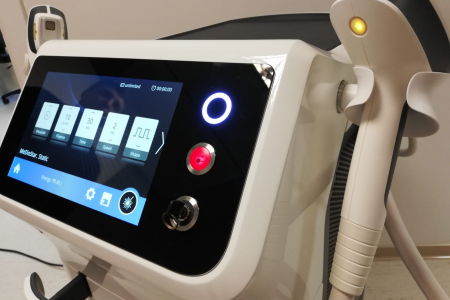Collagen powder is a supplement made from animal collagen, which has seen a surge in use for joint, skin, and bone health. Collagen is the most abundant protein in the human body and was recently found to have developmental benefits in 1991. It is one of the essential building blocks for skin and other body parts, but it’s challenging to produce and break down with age.
Hydrolyzed collagen
Hydrolyzed Collagen powder is widespread in the biomedical and cosmetic industries. It’s a low-molecular-weight version of collagen that’s highly digestible. In addition, it’s available in dietary supplement powders.
While hydrolyzed collagen powder is derived from marine animals and poultry, people who are allergic to fish or shellfish may be wary of taking this supplement. In addition, some people report an unpleasant taste or bloating after taking hydrolyzed collagen powder. Check your labels for possible interactions with prescription medications. A physician is always a good idea when taking hydrolyzed collagen powder.
Bioavailable collagen
Several factors should be considered before choosing a bioavailable collagen powder. First, it should be easily absorbed into the body. The benefits of bioavailable collagen powder are well documented. This supplement can be consumed alone or added to a variety of recipes. Some are poorly bioavailable, and others may have serious side effects.
Collagen is an insoluble protein found in muscle, cartilage, and connective tissues. It supports the elasticity of joints, bones, and skin. Although commercial collagen protein is usually derived from cows, it can also be obtained from fish. It is extracted by cooking cartilaginous animal materials. This protein is unsuitable for people following a strict vegetarian, vegan, or kosher diet. Bioavailable collagen powder contains a patented, bioavailable collagen peptide, which is highly absorbed by the body.
Animal collagen
Whether as a dietary supplement or as an additive to a smoothie, collagen powder is an excellent way to boost your collagen levels. Its hydrolyzed form makes it more easily absorbed by the body. Collagen powder is also marketed as collagen peptides or hydrolysate. Some people use it in their morning smoothies or to add to their coffee. Although it is generally known for its skin benefits, there are other uses for collagen powder, such as injury prevention, joint pain reduction, and mass muscle gain. However, most of the research has focused on wound healing.
Some collagen comes from animal bones, while others are derived from the membrane of eggshells. It is also possible to find vegan versions of collagen from algae. You may want to check the ingredients on the label and be aware of any allergies that may arise from the product. If you have a food allergy, it is essential to check the label. If you suspect you are allergic to any ingredients, avoid them and find a product containing no ingredients.
Oral collagen supplementation
There are many side effects associated with oral collagen supplementation. The sources of collagen peptides may include cow, shellfish, and fish. Some people may experience digestive upset or hypersensitivity reactions. There may also be drug interactions. Other side effects of oral collagen peptide supplements include skin breakouts and allergic reactions. You should check the complete ingredient list of your collagen supplement to avoid any adverse side effects. Collagen peptide supplements are from bovine, marine/fish, and chicken sources. Ensure you avoid supplements containing these ingredients if you are sensitive to them.
In addition to the side effects described above, collagen peptides can raise calcium levels. This can cause constipation, fatigue, nausea, vomiting, and bone pain. Taking collagen supplements with calcium supplements should be avoided in those who are susceptible to these side effects. However, if you take them as directed, you should speak with your doctor before starting them. If you’re concerned about any of these possible side effects, don’t hesitate to consult a physician and ask if there are other supplements you can take instead.
Adverse reactions to collagen powder
Collagen is often sold as a supplement for joint pain, but it has potential risks. Some people are allergic to fish, so collagen from fish may cause an allergic reaction. Because fish collagen is produced in high-heat processes, a person allergic to fish should avoid the supplement. Other collagen powders’ ingredients, including proline and glycine, may cause an allergic reaction, but these are not as common as fish-based collagen.
Although collagen peptides are generally accepted by vegans and vegetarians alike, they can cause gastrointestinal upset in some people. Therefore, if you are on a strict vegan diet, you may want to avoid collagen powder. On the other hand, if you are a plant-heavy consumer, collagen may be the ideal source of protein for you. It also has the added benefit of improving overall skin health and hydration so that it can be an acceptable source of protein for you.





